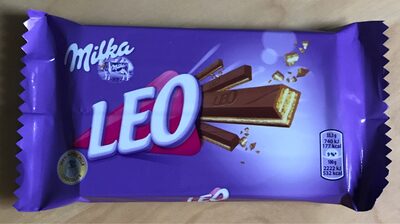
Barcode: 76222276
Leo
HALAL
📝 Reason: According to Islamic dietary law, all listed primary ingredients except for the generic ‘flavors’ are from plant or Halal-eligible animal sources and do not contain pork, alcohol, or Haram E-codes. However, the ingredient ‘flavors’ is marked as Doubtful due to the lack of specific identification and absence of Halal certification, as such ingredients may include non-Halal solvents or animal by-products (see IFANCA). Quran 5:3 prohibits consumption of unclear or doubtful items. Thus, the product is classified as Doubtful (2) in Halal status, as a single Doubtful ingredient requires this status according to the rules.
🏷️ Category: Snacks, Sweet Snacks, Cocoa And Its Products, Confectioneries, Chocolate Candies, Bars, Candy Chocolate Bars, Chocolate Biscuity Bars, Fr:Barre Chocolatee Biscuitee Type Kitkat
📄 Certificates: Green Dot, Made In Belgium, 100 Alpine Milk Chocolate, Vegetarisch
Ingredients:
Details
Understanding the Halal Status of Leo Chocolate
When it comes to enjoying sweet treats like the Leo Chocolate, many individuals, especially those following Islamic dietary laws, often ask: Is it Halal? This post dives deep into the Halal status of Leo Chocolate, its ingredients, and the reasoning behind its classification.
The Halal Status Explained
The Halal certification of a product indicates that it meets the dietary regulations as outlined in Islamic law. Leo Chocolate is predominantly made from ingredients that are considered Halal. However, it is crucial to examine each ingredient meticulously and address one particular ingredient that raises a flag.
Primary Ingredients Breakdown
- Sugar: Derived from plant sources, sugar is generally Halal unless processed using animal products, which is uncommon.
- Wheat Flour: This ingredient is Halal, coming from wheat grains.
- Cocoa Butter: As a vegetable fat sourced from cacao beans, it is Halal.
- Vegetable Fats (Coconut, Palm Kernel, Palm): These fats are Halal, being entirely plant-based.
- Cocoa Paste: Made from ground cacao beans, cocoa paste is of Halal origin.
- Skimmed Milk Powder: This comes from cow’s milk and is Halal as long as it contains no Haram additives.
- Whey Powder: A byproduct of milk, whey is Halal if not sourced with animal rennet.
- Concentrated Butter: Also Halal as it is derived from cow’s milk.
- Sunflower Oil: Extracted from sunflower seeds, it is Halal.
- Emulsifiers (Soy Lecithin, E476, Sunflower Lecithin): These are plant-based and considered Halal.
- Salt: A mineral, it is Halal.
- Coffee Extract: Also Halal, sourced from roasted coffee beans.
- Flavors: This ingredient is marked as Doubtful due to its vague nature and potential non-Halal sources.
A Closer Look at the Doubtful Ingredient: Flavors
The ingredient ‘flavors’ in Leo Chocolate raises concerns. ‘Flavors’ refers to a broad category that may include solvents or by-products from non-Halal sources. This uncertainty is pivotal because Islamic dietary laws discourage consuming items that are unclear or doubtful. According to Quran 5:3, any ingredient that bears doubt should be avoided. Therefore, the classification of Leo Chocolate as Halal is impacted by this single ingredient.
Conclusion
In summary, while most of the ingredients in Leo Chocolate are Halal, the ambiguous nature of ‘flavors’ leads to a recognition of the product as Doubtful (2) in Halal status. It is essential for those who adhere to Islamic dietary laws to be cautious and informed. If you’re looking to indulge in Leo Chocolate, be aware of its ingredients and consider this product carefully based on your Halal dietary requirements.
Purchasing Leo Chocolate
Despite the uncertainty surrounding the ‘flavors’ component, you may still wish to enjoy Leo Chocolate in moderation. Always check for more detailed ingredient disclosures or different batches that might clarify the Halal status. Remember, the responsibility lies with the consumer to make informed choices aligned with their dietary practices.
